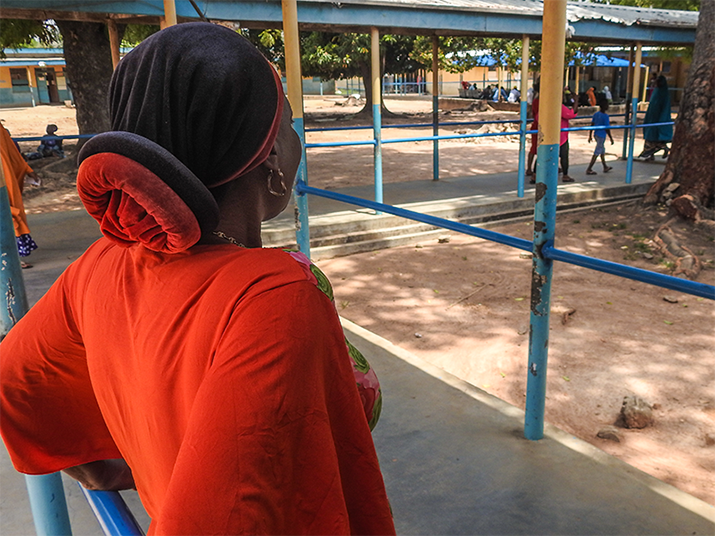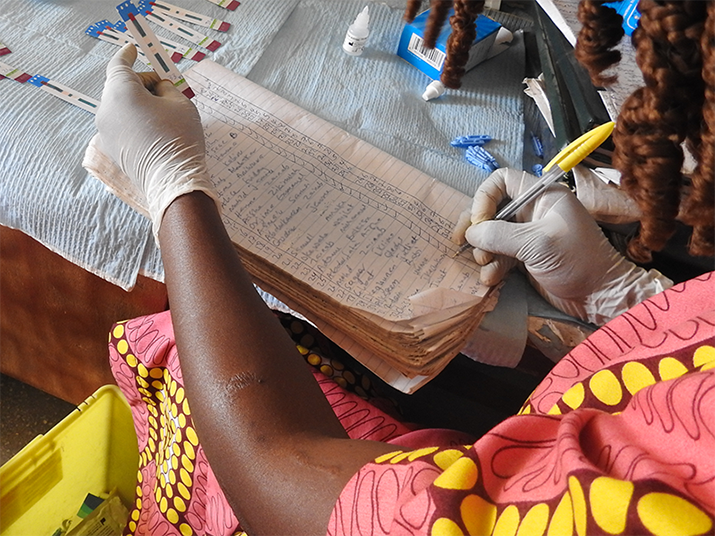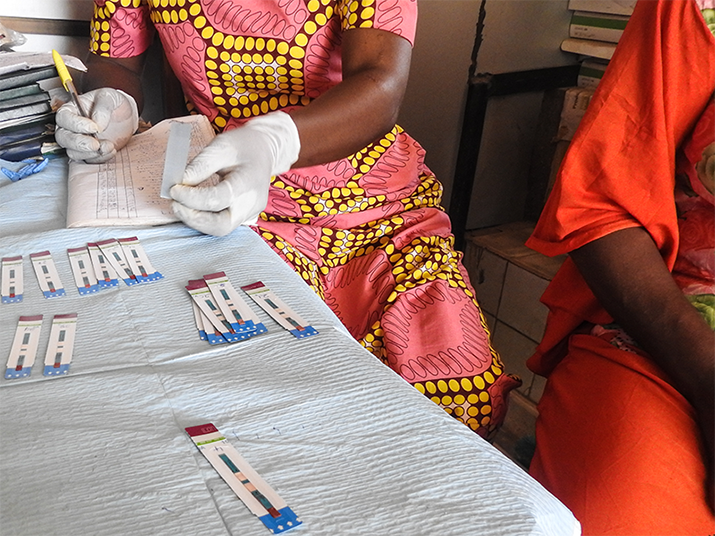Mentor mothers in Nigeria empower HIV-positive pregnant women to stay on treatment
Mentor mothers in Nigeria empower HIV-positive pregnant women to stay on treatment

Mary John is a 47-year-old mother of two and a hair stylist by profession. She is also one of Nigeria’s mentor mothers — women who provide counseling and essential health education to other HIV-positive mothers in their communities. As a peer and mentor, she teaches these women about how they can prevent their babies from contracting HIV and keep themselves and their families healthy.
Mary had been living with the virus for several years before she tested positive. Even though she was constantly falling ill, she feared being rejected by her husband and kept her status and treatment a secret.
In 2014, a friend invited Mary to be part of a workshop. “That meeting changed my life for good,” says Mary. That year, Niger state had organized its first mentor mothers training with support from USAID. “It opened my eyes to the fact that I can live a healthy life, even with the virus.”
Two years later, after traveling to Zamfara state to attend a follow-up workshop held by the USAID-funded Care and Treatment for Sustained Support (CaTSS) project, Mary decided to finally disclose her status to her husband. He listened and agreed to take an HIV test.
They were relieved to learn that he was HIV-negative. Mary knew that her experience living with HIV, coupled with her renewed commitment to protecting her husband from infection by staying on top of her own treatment, made her someone that others living with the virus could turn to for support.

One of five mentor mothers in her group, Mary travels 42 km (26 miles) to General Hospital Suleija in Niger state for weekly antenatal clinic days. Every Monday, expectant mothers visit this facility for check-ups and health talks, where they are also encouraged to be tested for HIV. This is where Mary and the other mentor mothers come in to play. Mary administers the test and for those who do test positive, provides supportive counseling and works with other service providers to initiate treatment.
Mary lives the benefits of staying true to HIV treatment and goes above and beyond to meet the needs of her peers to ensure that they feel supported to remain on treatment. She calls her mentees and reminds them of how important it is to take the medication, and she arranges transportation for those who can’t afford to travel or face other barriers to treatment.
“I remember a woman who came to the facility for antenatal care and tested positive. She eventually stopped coming to the hospital because she had never believed her baby could be born HIV-free. I kept calling her to follow up, and when I realized I wasn’t getting through to her, I went to visit her at her home. I reiterated the need for her to continue her antiretroviral drugs and to keep coming in for antenatal visits. The woman later heeded to my advice, and months later she gave birth to a healthy baby who was HIV-negative.” Mary remembers this as one of her happiest achievements as a mentor mother.

“Most of these mothers don’t believe it’s possible to deliver an HIV-negative baby…I always use myself and my other colleagues as an example to encourage them that it is possible to protect your child from being born with HIV.”
Today, the CaTSS program, led by Management Sciences for Health (MSH), supports the Government of Nigeria in the maintenance and uninterrupted delivery of quality HIV care and treatment services across five states: Kebbi, Kwara, Niger, Sokoto, and Zamfara. Twenty mentor mothers work within teams at high-volume health care facilities, offering HIV treatment, counseling, antenatal services, promotion of facility delivery, encouragement of male involvement and family testing, group support, family planning counseling, and promotion of appropriate infant feeding options.
![[Photo Credit: Gwenn Dubourthournieu]](https://msh.org/wp-content/uploads/2019/04/msh_abuja_national_hospital_14.05.2014_28_715px.png)
Beyond being role models, these women empower mothers living with HIV while contributing to the fight against pediatric HIV and AIDS in Nigeria. “Previously, if women delivered 10 children, you would see 8 positives and 2 negatives, but now it is not like that…I and my colleagues are achieving our goal of delivering 100% HIV-negative babies,” says Mary, beaming proudly.
“MSH helped me to achieve this feat. Without them, I wouldn’t have been able to know my status and pick up the task of being a mentor mother. I now walk with confidence and I have no shame.” Mary supports nearly 50 women throughout pregnancy, delivery, and breastfeeding and has promised to continue working hard and counseling people in her community toward a healthier Nigeria.